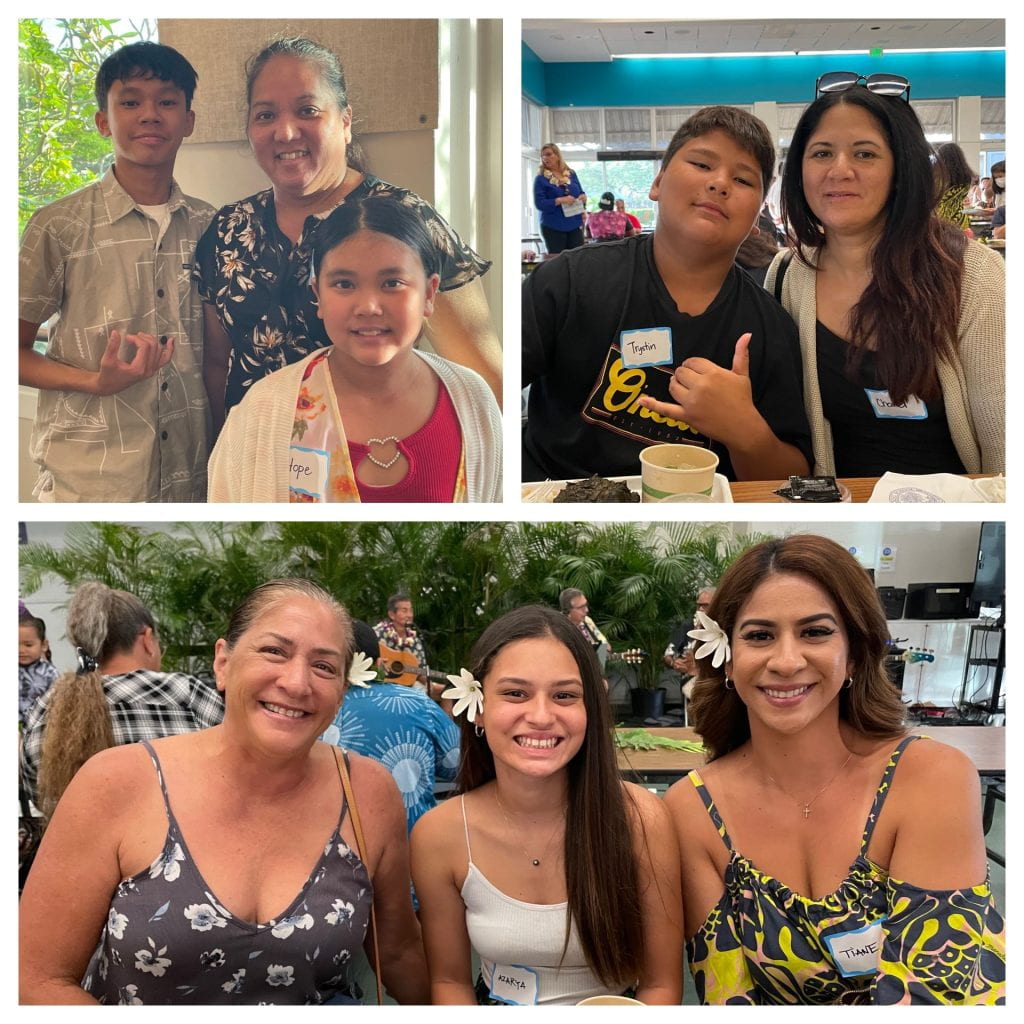ALOHA FOCUS FOR THE WEEK: HAʻAHAʻA
Redup. of haʻa; low, lowly, minimum, humble, degraded, meek, unpretentious, modest, unassuming, unobtrusive; lowness, humility. (Pukui-Elbert)
Early in my career as a high school teacher, I chastised students who used profanity, asking if they would use language like that around their parents or grandparents. Most would avoid my gaze, sheepishly mumble, “no,” and then apologize. However, there were more than a few who defiantly confirmed that’s how they speak at home. Back then, I dismissed those responses as an oppositional fabrication and reprimanded the student further. I could not imagine anyone swearing at home. It certainly was not how I brought up and not how my friends were either (at least I assumed). Consequently, I surmised my personal experiences were universal for all of my students.
Then a few years later, I was sincerely blessed to be welcomed into the homes of my students. I served as their class advisor and spent many late nights constructing floats for the homecoming parades and chaperoning dance rehearsals for assemblies. There, I saw how different their lives were compared to mine. Some were raised by an older sibling. Others served as the caregivers for their elderly grandparents who were also their guardians. All were loved and provided for. Some lived in strictly religious, austere households. Others seemed to have no rules and were often unsupervised for most of the night. All were extremely generous and welcoming.
Getting a glimpse into their lives taught me that I knew so little. I made broad assumptions that could not be further from the truth. Everyone has different life experiences and everyone experiences life differently. And while it is still improper and unacceptable to swear at school, I never again asked students if that’s what they do at home. Instead, I let them know what is the expected behavior in this context and how others might perceive that as disrespectful. After all everyone has different life experiences and everyone experiences life differently.
Aunty Pilahi Paki taught Pono to “go empty” when striving to be haʻahaʻa. In other words to be open-minded and not cast judgements on others. She said that you must empty yourself of your ego so that you can listen to and understand others.
To become more HAʻAHAʻA,
- Empty yourself of ego and judgements
- Listen and observe with an open mind and heart
- Consider there are many ways to be and do what’s right
5 PURSUITS of HAʻAHAʻA:
Inspired by Gholdy Muhammad
Please watch this: Milo Imagines the World by Matt de la Peña and illustrated by Christian Robinson. (Note – the reading of the story begins at 2:25 and goes to 11:26. The full video is just under a half-hour and is totally worth watching it in its entirety. The author and illustrator share their process and the backstory of the book.)Then with you child, answer the following:
IDENTITY: Does anyone you know like to draw? What makes drawing pleasurable for that person (ask them and listen to what they say)?
SKILLS: What might be the main message of this book? What makes you think this?
INTELLECT: As you listen to the story, the author uses alliteration and onomatopoeia. Research what these literary tools are, point our where they are used in the story and then come up with examples of your own.
CRITICALITY: Have you ever wrongly judged someone – making an assumption about what they might be feeling or thinking? Share about this time and how, in the future, you can avoid judging others.
JOY: Draw a picture of your loved ones sharing a happy moment in the future.
If your child asks what happened to Milo’s mom and why she is in a correctional facility, the author suggests the following:
We know that when we do not obey a rule in school or at home, we have a consequence. Adults also have consequences when they do not obey rules. Milo’s mom might have not obeyed a law and the consequence for the specific law she broke was spending a certain amount of time in a correctional facility.
After listening to students share their ideas, follow up with questions that will humanize Milo’s mother further, and create a baseline, a starting point students have created themselves, to refer to when they think and refer to a person that is or has been incarcerated. You could ask:
Using your background knowledge and the clues the author and the illustrator give us as readers, brainstorm with a partner(s) how you can tell that Milo’s mom is a good mother.
HOʻOMAIKAʻI: PUEO Scholars

For the past 12 years, Kāneʻohe Elementary has partnered with Punahou School to recognize students as scholars for the PUEO (Partnerships in Unlimited Educational Opportunities) program. Students selected for PUEO attend a special summer program at Punahou from the time of entry until their senior year. During this time, students take a variety of courses designed to ready students for college while building pilina and resiliency. Until recently, Kāneʻohe was allowed to nominate one 5th grader to the program. This year, we were fortunate that we had a fourth grader, Hope Bunda, and two fifth graders, Trystin Arikawa and Azarya Young-Kawaa, accepted into the program. They join sixth graders, Levi Bertelmann and Hiʻilani Taniguchi, as Kāneʻohe’s PUEO scholars. (Pictured are our newest PUEO scholars with their families, including Kāneʻohe alumnus and PUEO scholar Jayse Bunda.)
UPCOMING EVENTS
| Tue, Apr 18, 2023 | 6th grade promotion picture taking |
| Sat, Apr 22, 2023 | Rainbow Keiki Run |
| Fri, Apr 28, 2023 | STEM Hōʻike (details TBA) |
| Sat, May 13, 2023 | Campus Beautification #2 |